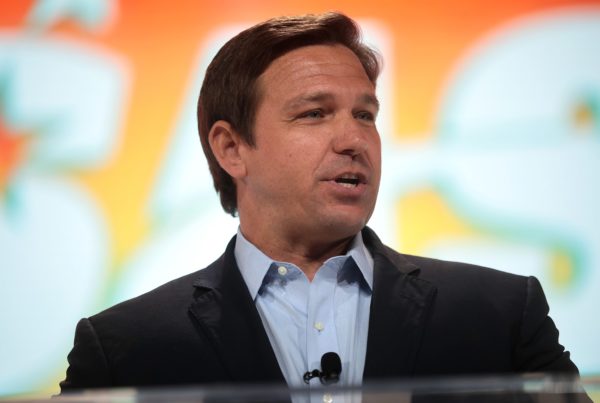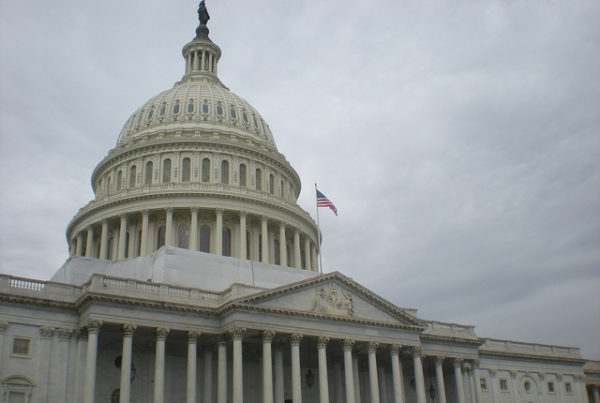If you’ve bought anything online lately, you’ve likely noticed several payment options – credit card, and perhaps PayPal. And, on many sites, another more recent addition: Buy Now, Pay Later.
BNPL plans are offered through companies like Klarna, Afterpay or Affirm, and the premise is not unlike that of any other type of financing: place your order now, make a down payment, and break up the rest into smaller installments, typically four.
Nadine Chabrier is senior policy and litigation counsel at the Center for Responsible Lending, and spoke with the Standard about why consumers should use caution when financing with Buy Now, Pay Later. She said that, while the loans aren’t inherently predatory, they can quickly rack up fees if borrowers aren’t careful. Listen to the interview above or read the transcript below.
This transcript has been edited lightly for clarity:
Texas Standard: The director of the CFPB, Rohit Chopra, called Buy Now, Pay Later the ‘new version of the old layaway plan.’ How do these plans differ from traditional lines of credit?
Nadine Chabrier: Well, Buy Now, Pay Later is like a credit card. It’s revolving credit, so it allows you to borrow money, to spend the money you have, and then repay it and borrow again as you need to. It’s really the same as a credit card.
It doesn’t sound like it’s that particularly different. So why is it that the CFPB wants to take a closer look?
The concerns that we have are, and CFPB has really underlined this in their recent report, that there’s really inconsistent consumer protections. So there’s a lack of underwriting, which means that Buy Now, Pay Later does not consider the debts that you already have when you’re borrowing. There’s a lack of disclosures. There’s a lack of dispute rights for Buy Now, Pay Later. So those are some of the concerns that both we as consumer advocates and CFPB has raised.
I think some would make the case this offers options for essentially credit, similar to what you were describing for those who may not be able to access credit cards, for example. And many of these plans appear to be interest-free, which certainly seems like an advantage. Why would this not be a net positive?
We’re not necessarily saying Buy Now, Pay Later needs to go away or there’s inherent problems with it. It just needs to be regulated like a credit card. So it becomes a problem when, for example, as many consumers do, you take out multiple Buy Now, Pay Later loans. So they’ve stacked their loans and then they potentially lose track of payments, incurring late fees and potentially overdraft fees. So some of the things that we suggest help people to understand the product they’re using. The disclosures help to ensure that consumers can actually afford what they’re borrowing.
I just want to get down to the reality, though, of the human experience. As we all know, a lot of times when someone’s making a purchase online and they see a list of disclosures, they just click the checkbox and move on. There’s something about human nature there, or you’re looking to make that purchase. Will these disclosures really make a difference?
I think they do. I think with a credit card, you have, for example, an APR, and that helps you understand the total cost of credit. If you know at the outset what you’re getting into and what the fees you might incur for using the product, like a $25 late fee, for example — which isn’t disclosed at the beginning of the process with Buy Now, Pay Later — that will help.
When you use a Buy Now, Pay Later plan, are you subject to higher fees and penalties than you would be normally if you were to use a credit card?
You could be. The problem is, as I said, is that you just don’t know at the beginning. So, well, it seems like a good idea. Check out if you make an error in terms of payment dates or cash flow, then you incur those late fees which you were not expecting. So it’s marketed as interest-free. However, people find that in the practical usage, because you don’t have a set due date like a credit card, it can be a problem for consumers when they have multiple payments out there, as I said, with loan stacking and using multiple Buy Now, Pay Later purchases.
Is Buy Now, Pay Later fundamentally predatory or not so much?
I wouldn’t characterize it as fundamentally predatory. I would characterize it as a novel product that doesn’t have the guardrails around it that consumers need.















